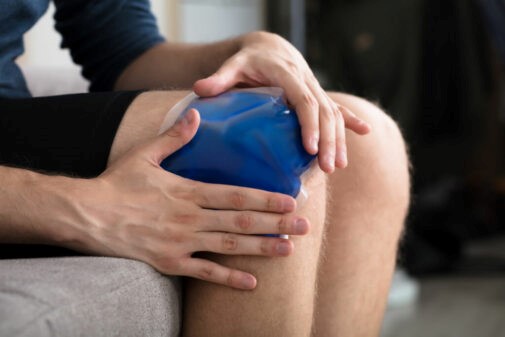7 Tips to Help You Recover Faster from Major Surgery

If you have a major surgery coming up, you may be thinking of ways to get prepared. But it is also important to think about what to do after surgery to ensure a speedy recovery.
Amy Barwick, doctor of physical therapy and senior physical therapist for Aurora St. Luke’s Medical Center in Milwaukee, offered these tips for a swift recovery.
- Always follow your doctor’s restrictions and instructions
It is important to listen to your doctor’s restrictions, but do not be afraid to reach out to them with any questions or concerns. “We don’t want you to be afraid to move, so if you are not sure what movements are appropriate, make sure you ask,” she said.
The biggest mistake people make post-surgery is over-doing activity — so do not go on vacation, plan big parties, or lift too much, Barwick added. Take it slow.
- Ice is your friend
“Ice can assist with postoperative swelling and pain. Apply for 15-20 minutes wherever it hurts, even if it is not the incision site,” said Barwick. “Most surgeons are going to be okay with you icing for pain but make sure to ask.”
- Early mobilization is key
Depending on the type of surgery and your doctor’s restrictions, it is important to get your body moving as soon as you can after surgery.
“Get up and move in the hospital,” said Barwick. “When you go home, try to get up once an hour during the day, even if it’s just to stand in place or walk around the room.”
She said a goal of 30 minutes of movement a day (and it does not need to be consecutive) is recommended by many organizations, such as the ACSM (American College of Sports Medicine) and the American Cancer Society.
- Try deep breathing
“Deep breathing after surgery assists with expelling anesthesia and prevents postoperative complications such as pneumonia,” says Barwick. “Too many of us take shallow quick breaths which decreases our oxygen input.”
Ideally, those recovering should do so from their diaphragm, the main breathing muscle under the lower ribs. This is also known as “belly breathing,” named after how the belly should go in when breathing out and go out when breathing in.
- Get good nutrition
“Eating a balanced diet can assist with healing,” she said. “If you have no appetite, think high-calorie, high-protein snacks versus your go-to bag of chips.”
- Massage your scar
“When your incision is 100% healed and no scabs (roughly 4 weeks), start to touch and rub it,” said Barwick. “Our skin should move and when it heals post-operatively it can adhere to the layer underneath, which can contribute to pain or decreased motion. Apply a little pressure and move the incision in each direction for a few minutes a day.”
- And finally, do not smoke
“Smoking is linked to slower healing rates,” she said.
Article contributed by Sarah Kennedy.
Tags: #parishnurse, #recovery, #surgery, #surgicalrecovery

Comments are closed here.